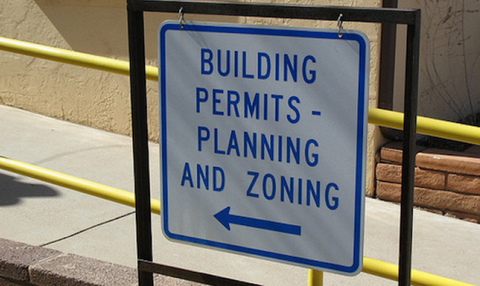
When planning construction costs for your renovation project, one of the main factors is whether you need a construction permit. Pulling construction permits requires opening your property to an inspector who might ask you to bring many areas of your home “up to code.” This adds extra expenses to your renovation. On the other hand, not getting a construction permit might result in retroactive changes to the areas you’ve already completed. As a result, not only will your costs increase, but you might also experience significant delays. One of the worst mistakes a rehabber can make is to plunge into the house renovation process without carefully considering whether to get a construction permit or not.
What is a construction permit?
Construction permits are official approvals from local governments that authorize specific building projects or renovations. They ensure that construction meets local building codes, zoning laws, and safety regulations.
Three Serious Mistakes Every Investor Must Avoid When Dealing with Construction Permits
Ignoring Renovation Scope
We had a client who told us that his house flip needs light updates, which he had planned to do himself. So far, so good. He then submitted a scope of work that included replacing baseboard heating with a central air system. He also planned to move the gas stoves around (along with the gas pipes). Alarmingly, he still considered his renovation “cosmetic” and was intent on doing them himself. Needless to say, such a scenario is literally “explosive.” This is exactly why regulations exist. They protect inexperienced or irresponsible folk from harming themselves and others. If your scope of work requires significant renovations, new additions, overhaul of the property’s electrical systems, or has anything to do with gas, please do a responsible thing and get a permit.
Here is the list of projects that usually require construction permits:
- New construction: Building new structures, including homes or commercial buildings.
- Major renovations: Projects that alter the structure, such as adding rooms, changing the roofline, or demolishing walls.
- Electrical work: Major rewiring or installing new electrical systems.
- Plumbing changes: Installing or significantly altering plumbing systems.
- Mechanical systems: Installing or modifying HVAC systems.
- Demolition: Removing structures or significant portions of a building.
- Exterior changes: Changes like building fences, decks, or swimming pools often need permits.
On the other end of the spectrum, it’s safe to assume that true cosmetic repairs such as new paint, carpets, flooring and appliances might not require a construction permit. That means that you can move fast and without spending extra money on licensed plumbers and electricians.
Not Talking to Experts
However, there is also a gray area in between that poses the most challenging questions. This is why it’s essential to talk to the experts before starting your first rehab project. Such experts include your contractor, real estate agent, an experienced rehabber you might know, and your private lender. It’s also an excellent idea to call your city or county and ask them your questions anonymously. If you decide not to pull the construction permit, you should be prepared for the possibility that the county will place a stop work order on your project. This is another compelling reason NOT to hope for the best-case scenario when evaluating your costs. This is why it’s essential to have sufficient reserves to cover additional costs without causing further delays.
One more thing to remember: once an inspector is in the property, he’ll likely be taking a close look at the entire house—regardless of what he came to inspect. If he sees any improvements that aren’t cosmetic, the inspector can require them to meet the code.
Ignoring Construction Permit Requirements and Culture in Your Area
The permitting requirements vary significantly by area. For example, it’s safe to assume that a condo conversion in Washington, DC, would need a construction permit. This is why renovations in DC are notoriously expensive and lengthy (but profitable nevertheless). Historically, the Maryland counties have been more relaxed, but that appears to be changing. Maryland inspectors are becoming more proactive in handing out stop-work orders and requiring permits for any non-cosmetic improvements.
The bottom line is that you can take a chance and not pull a permit. Unless an inspector catches you in the middle of a major remodel on a random drive-by or your neighbors complain, you may get away with it. However, if you are taking this risk, you should be aware of its consequences. You must be prepared to meet the additional expenses if required.
New Funding Resources is a private mortgage lender that operates exclusively in Maryland, Washington, DC, and Virginia. For over 17 years, we have worked closely with DC area rehabbers to help them make money and manage their risk.
 New Funding Resources
New Funding Resources 





Leave a Reply